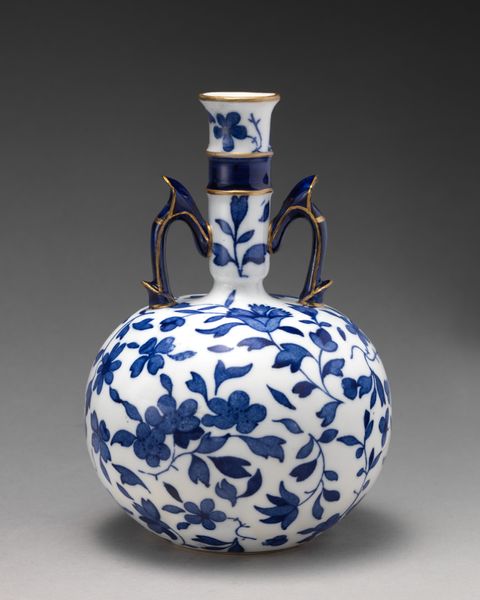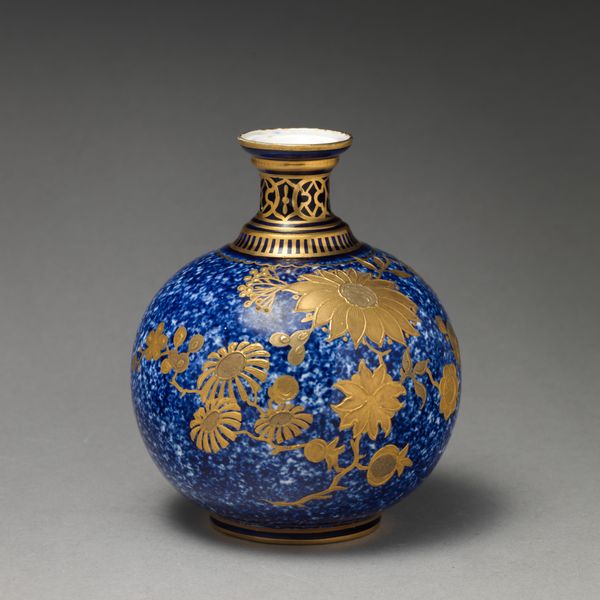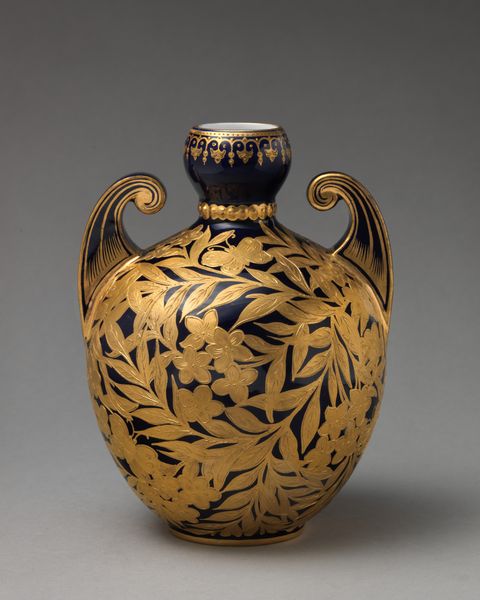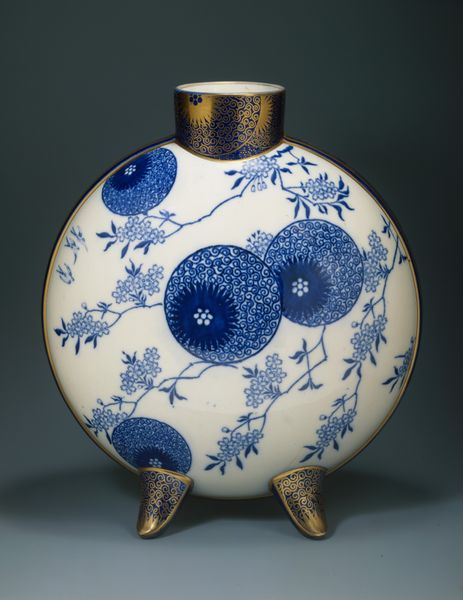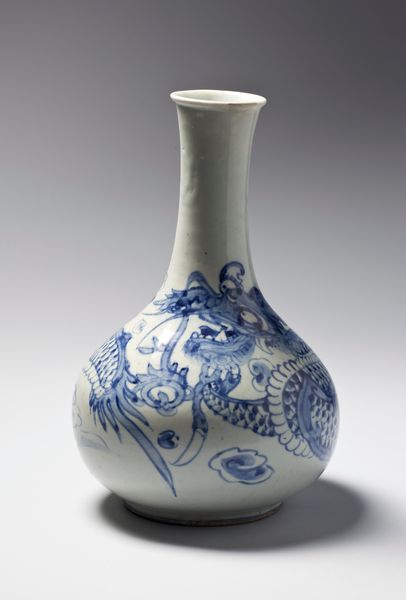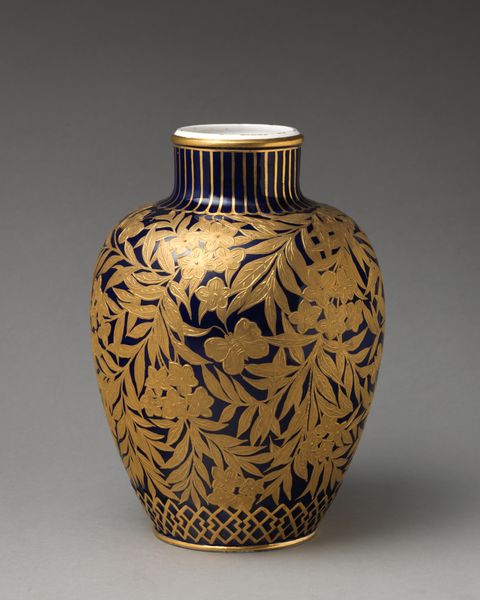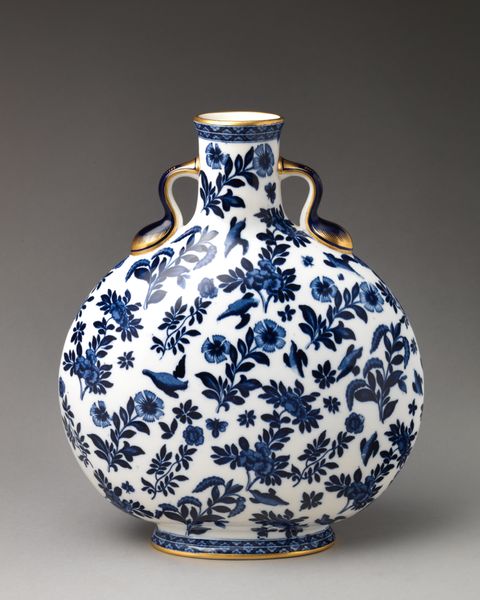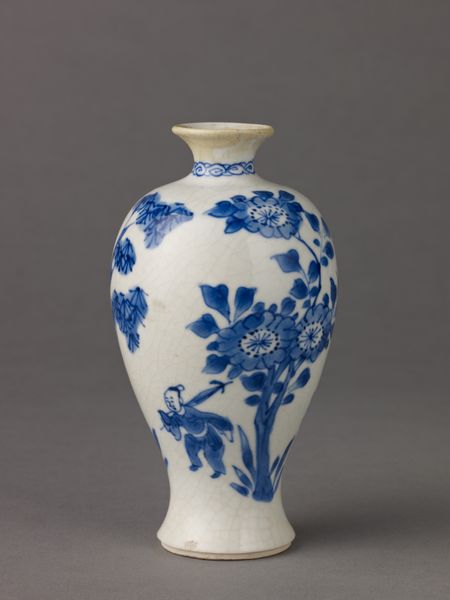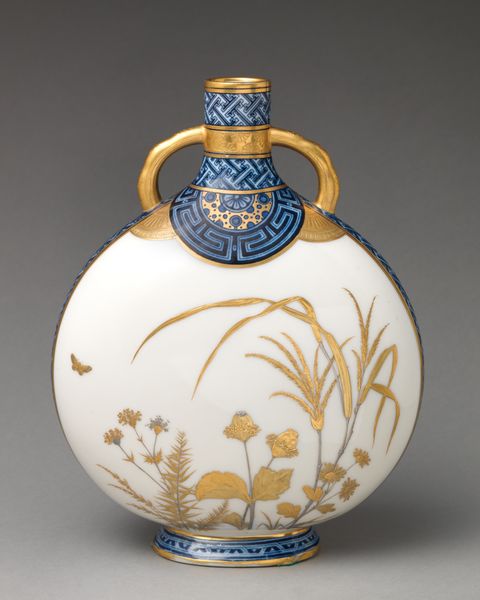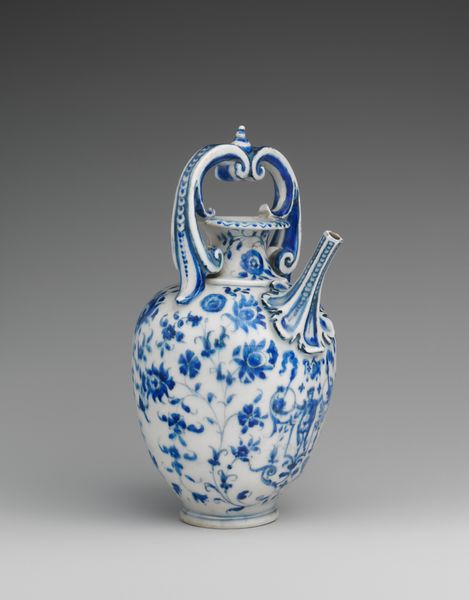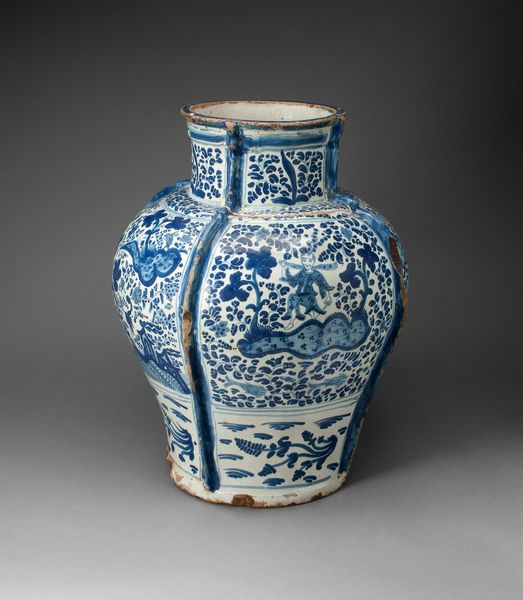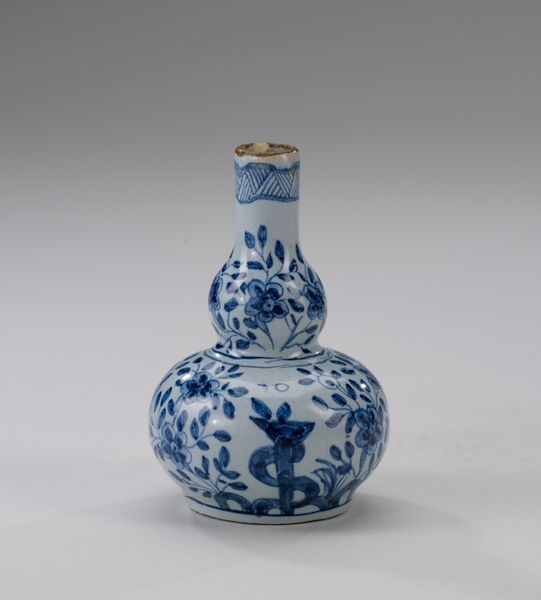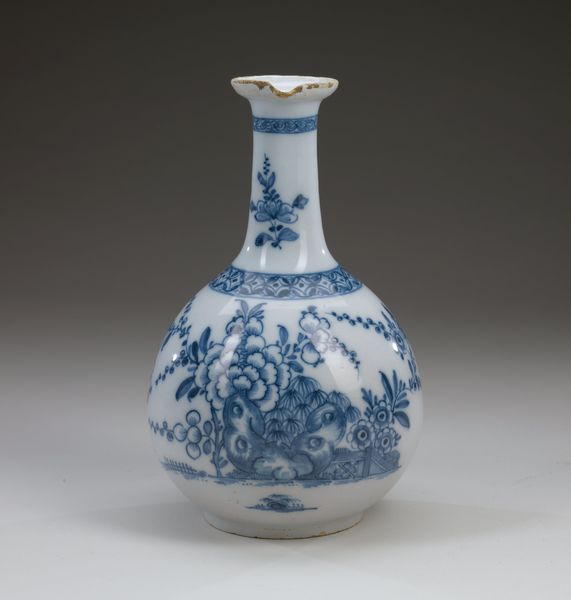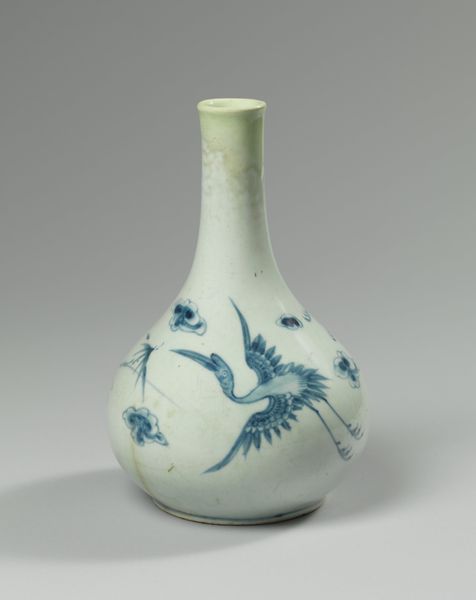
ceramic, porcelain, sculpture
#
fish
#
asian-art
#
ceramic
#
porcelain
#
sculpture
#
orientalism
#
decorative-art
Dimensions: confirmed: 7 3/4 × 6 × 3 1/8 in., 15.872oz. (19.7 × 15.2 × 7.9 cm, 450g)
Copyright: Public Domain
Editor: This striking moon flask, crafted around 1870, features a mesmerizing combination of ceramic and porcelain, showcasing crane and fish motifs. I'm immediately drawn to the vibrant turquoise, contrasted by the delicate imagery. What can you tell me about it? Curator: This piece exemplifies the 19th-century fascination with Japonism and Orientalism. How do you think this piece reflects cultural exchange and appropriation of the time? Consider the market it was intended for, likely wealthy Western collectors eager for exotic treasures. It’s not simply a reproduction, but a reinterpretation, fitting into the decorative art market’s existing frameworks. Editor: That’s interesting. I hadn't considered the audience influencing the design itself, more like its destination after the fact. Curator: Precisely! And notice the subject matter. Cranes and fish held symbolic weight in Asian cultures—longevity and prosperity respectively. But how do those meanings shift, or are they perhaps flattened, when presented to a Western audience as purely decorative elements devoid of deeper cultural understanding? The very act of display, within a museum context even, recontextualizes these symbols yet again. Editor: So, it's about more than just aesthetics; it's about the politics of display and how cultural objects are understood – or misunderstood – through different lenses? Curator: Exactly. We must analyze how such artworks became popular, how they were marketed and consumed, and what narratives museums presented alongside them. All those layers inform the object's value, and how it continues to speak to us today. Editor: I guess it highlights the importance of critically examining not just what we see, but how and why we're seeing it the way we are. That is eye-opening. Curator: Absolutely. It makes us re-evaluate the agency involved when art crosses borders.
Comments
No comments
Be the first to comment and join the conversation on the ultimate creative platform.
